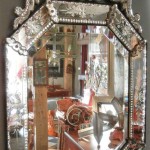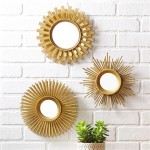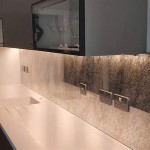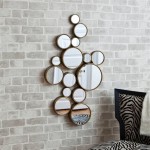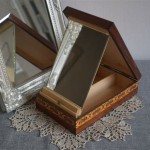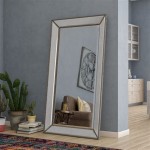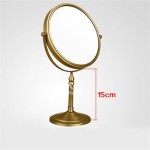Mercury Mirror Glass Tiles: A Reflective Surface for Design
Mercury mirror glass tiles offer a unique and captivating aesthetic, adding depth and luminosity to any space. Their reflective surface creates an illusion of expanded space, making them a popular choice for both residential and commercial applications. Understanding their properties, manufacturing process, and applications can help inform design choices and ensure successful implementation.
The term "mercury mirror" refers to the traditional method of producing mirrored glass using a tin-mercury amalgam. Modern mercury mirror tiles, however, rarely utilize actual mercury due to environmental and health concerns. Instead, they achieve the mirrored effect through a silvering process, applying a thin layer of silver to the back of the glass, followed by a protective coating of copper and paint. This process provides a highly reflective surface resembling the traditional mercury mirror, without the associated risks.
The manufacturing process begins with selecting high-quality glass, often float glass, which is known for its uniform thickness and smooth surface. The glass is thoroughly cleaned to remove any impurities that could affect the adhesion of the silvering. The silvering process involves spraying a solution containing silver nitrate onto the glass surface. A chemical reaction then converts the silver nitrate into a thin layer of metallic silver, creating the reflective surface. This silver layer is delicate and prone to oxidation, so a layer of copper is applied for protection, followed by a layer of paint to further seal and protect the reflective backing.
The resulting mirrored tile is then cut and beveled according to the desired shape and size. Various shapes and sizes are available, from small squares and rectangles to larger, custom-designed pieces. The edges of the tiles can be beveled to create a polished, finished look and minimize sharp edges. Some manufacturers offer antique or distressed finishes, adding a vintage or aged appearance to the tiles, expanding their design versatility.
The reflective properties of mercury mirror glass tiles make them an excellent choice for enhancing natural light in a room. By reflecting light, they can brighten dimly lit spaces and create a sense of spaciousness. This characteristic is particularly beneficial in smaller rooms or areas with limited natural light sources. They can also be strategically placed to highlight architectural features or create interesting visual effects.
Mercury mirror glass tiles find application in a wide range of interior design projects. They are frequently used as backsplashes in kitchens and bathrooms, adding a touch of elegance and reflectivity. In living areas, they can be incorporated into feature walls, fireplace surrounds, or decorative accents. They also lend themselves well to commercial spaces, such as restaurants, bars, and retail stores, where they can create a glamorous and sophisticated atmosphere.
Beyond their aesthetic appeal, mercury mirror glass tiles offer several practical benefits. They are relatively easy to clean and maintain, requiring only a simple wipe with a glass cleaner. Their durable surface resists scratches and stains, ensuring long-lasting beauty. The reflective surface can also help to insulate a room by reflecting heat back into the space, contributing to energy efficiency.
When incorporating mercury mirror glass tiles into a design, it's important to consider the surrounding environment and lighting conditions. Excessive direct sunlight can cause glare and diminish the reflective effect. Careful placement and consideration of light sources can optimize the visual impact of the tiles. It’s also crucial to consider the overall design scheme and choose a tile size and shape that complements the existing décor.
The versatility of mercury mirror glass tiles extends to their compatibility with various design styles. They can be seamlessly integrated into modern, contemporary, traditional, and even eclectic interiors. Their reflective surface adds a touch of glamour and sophistication, elevating the overall aesthetic of the space. The ability to customize shapes and sizes allows for greater design flexibility and personalization.
While mercury mirror glass tiles offer many advantages, it's important to be aware of potential drawbacks. The reflective surface can be prone to fingerprints and smudges, requiring regular cleaning. In areas with high humidity, such as bathrooms, proper ventilation is essential to prevent moisture buildup behind the tiles. Careful handling during installation is also crucial to avoid chipping or cracking the glass.
Proper installation is essential for maximizing the longevity and aesthetic appeal of mercury mirror glass tiles. The surface on which the tiles are installed must be clean, smooth, and free of any debris. Using a high-quality adhesive designed specifically for glass tiles is crucial for ensuring proper adhesion. Grout lines should be kept to a minimum to enhance the reflective surface and create a seamless look.

Rococo Mercury Glass Mirror Tile 15x30cm Co

Antique Mirror Tiles Backsplash Müller Designs

Mirror The Right Way To Use Mirrors In Your Home Bathroom Design Luxury Elegant Interior

Antique Mirror Tiles Vintage Müller Designs

Antiqued Mirror Wall For A Spacious And Bright Entryway

Flipping Houses Home Renovation In Silicon Valley

Antique Mirror Kitchen Tiles Splashbacks

Rococo Mercury Glass Mirror Tile 15x30cm Co

3x12 Beveled Antique Mirror Glass Subway Tile With Free On Qualifying Orders

Merola Tile Re Beveled Antique Mirror 3 In X 6 Glass Wall 10 4 Sq Ft Case Wsdlsbam The Home Depot

